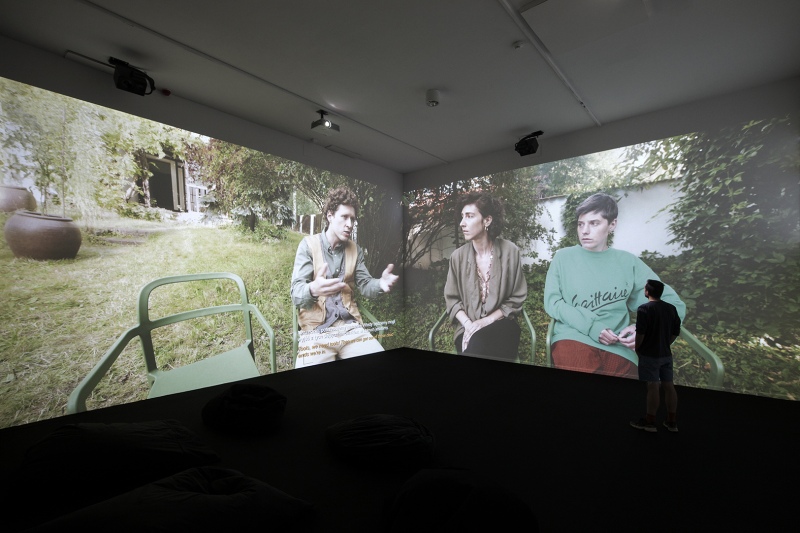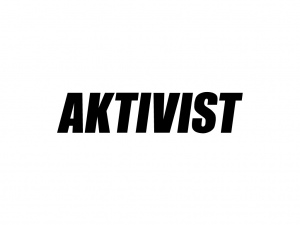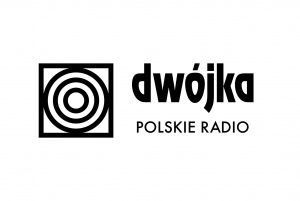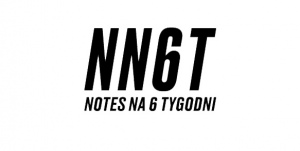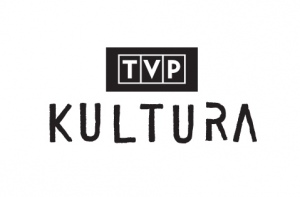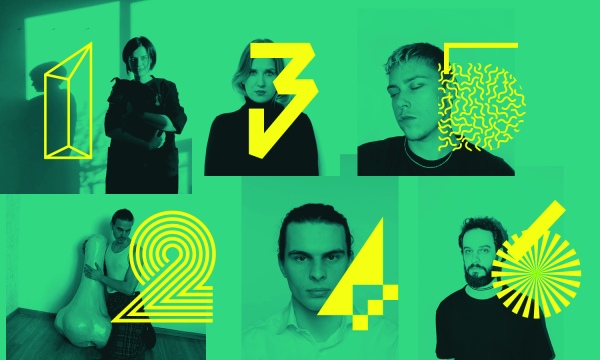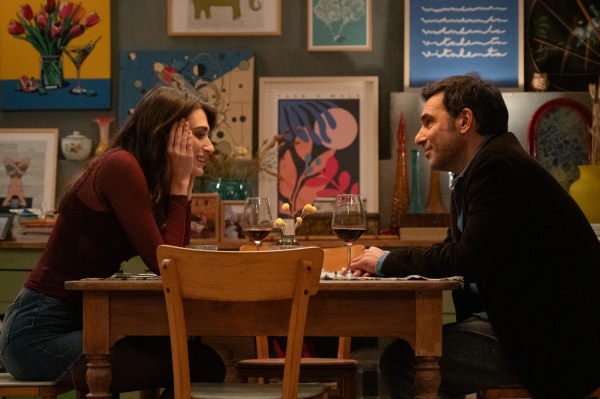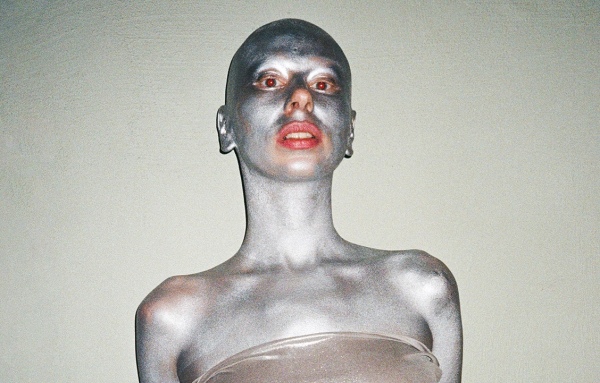Adelina Cimochowicz
Utrata / Loss, or the History of a Long-held Mistake
The new work by Adelina Cimochowicz, exhibited in the Project Room space of Ujazdowski Castle Centre for Contemporary Art, is a three-channel video installation – a recording of a staged, semi-fictional story based on the artist’s original script. The stage of the depiction is a back garden in a small town near Warsaw, and the protagonists – a secluded community. At a key moment a new person, seemingly against the will of the others, joins the group. It is unclear what the presence of an additional, unexpected person will bring. How will it affect the existing relationships, and will a truce be possible if there is a clash between members of the community?
In constructing the narrative, the artist refers to her own experiences and reaches for broader interpretations of social relations within a group. The situation shown in the film can be interpreted as a multidimensional depiction of interactions during the pandemic that further explores the experience of isolation forcing us, for safety reasons, to transition from direct to mediated forms of communication. The exhibition is presented in parallel with a public discussion on belonging to specific groups and exclusions this brings. This of course relates to the exhibition space itself: a contemporary art institution that for several years saw attempts at redefining it, hindered by conflicts within the team. The position forced upon the film’s protagonists conjures many associations: an everyday meeting is a method of maintaining or deepening the links within the group, but it also resembles a confrontation. The problem with repeating attempts at making a connection and the insecurity of ties has become even more apparent during the SARS-CoV-2 epidemic and the attendant “social distancing” measures. It is also a moment when the role of the group leader is re-evaluated – the leader who attempts to establish a new order, perhaps on the basis of principles that do not suit other members of the group.
One reference for the film is, among others, the history of one of the oldest and largest support centres for people struggling with anxiety disorders – Neurotic Disorders Department in Komorów near Warsaw, which operated until 2015 in a historic park on the Utrata River. This unique place is the backdrop of a book entitled Return from the Land of Fear. In it, in a series of informal letters to the patient, the psychotherapist Andrzej Rogiewicz defines anxiety disorders, formerly described as neurosis, based on examples collected throughout his career. Rogiewicz, the former head of the Department, avoids scientific jargon and explains how individual experiences, confrontations, or even the expectations of others may affect our perception of reality and self-esteem, and at a later stage – the difficult and often recurring feelings of being lost.
Cimochowicz’s artistic practices can be seen as an attempt to create conditions for meeting other people and situations conducive to social observation. To visualize certain mechanisms, the artist starts with her own experiences and uses them to build a broader narrative. She examines her own fears and simultaneously collects images and catalogues other people’s images (Museum of Neurosis, 2018). The artist draws attention to everyday mechanisms that can cause anxiety and may lead to exclusion. Using her experience of working with tenants’ organizations and observations regarding the issue of Warsaw and other cities’s shrinking housing stock, she postulates support for residents and raising awareness of their rights, e.g. by helping in the fight to connect city tenements to the central heating network (There is nothing and all rumors that something is there, were overthrown, 2019). Cimochowicz’s installations sometimes take the shape of meetings, during which she serves homemade food (The Week of Radical Abundance, 2019). At other times, her work features elements of activism, although the artist tries not to combine artistic activities with any involvement in social issues. Writing often features in Cimochowicz’s work: it appears in the artworks themselves, in her videos, scripts, and other forms describing, for example, her daily gardening efforts.
- Text
- Romuald Demidenko
- Translated by
- Joanna Figiel
